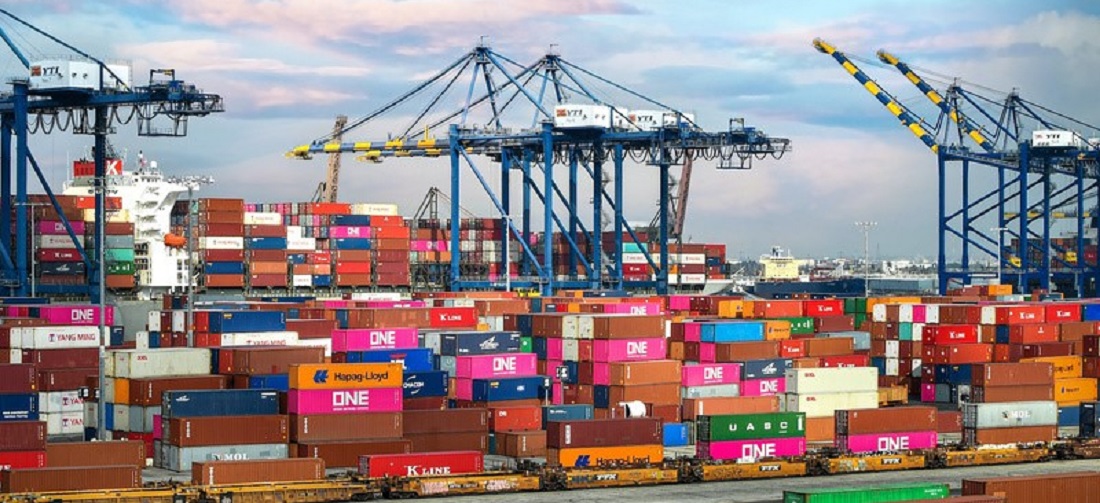For next year, Mr. Barral said there are many uncertainties. “A big elephant in the room is the behavior of the Chinese economy,” said Mr. Barral. The price of key items on Brazil’s export list, such as iron ore, depends on it, he said. Last week, the International Monetary Fund lowered its forecast for China’s GDP growth from 5.2% to 5% in 2023 and from 4.5% to 4.2% in 2024. The main cause for concern, said Mr. Barral, is the crisis in the Asian country’s real estate sector.

Export profitability down 3.9%, driven by prices
Oct, 19, 2023 Posted by Gabriel MalheirosWeek 202340
Affected by the fall in shipping prices, the average profitability of Brazilian exporters fell by 3.9% in the first eight months of this year compared to the same period in 2022. The 6.1% reduction in production costs brought about by the global deflation process was not enough to guarantee an increase in export margins, and its effect was mitigated by the 8.1% fall in average shipping prices and the 2% nominal appreciation of the real against the dollar. The data come from the Foundation for Foreign Trade Studies (Funcex).
However, the performance was not uniform across the main sectors of activity. Export profitability fell in the agriculture sector and in the extractive industry, with declines of 5.4% and 16.2%, respectively, in the same eight-month comparison. In these activities, the impact of the fall in the average export price and the appreciation of the real outweighed the reduction in costs. Conversely, the profitability of manufacturing shipments increased by 2.4% in the same period. The increase in margins came about because the 6.4% reduction in production costs offset the 2.2% decline in the sector’s export prices and the 2% appreciation of the national currency.
The current outlook, according to Daiane Santos, professor of Postgraduate Studies in Economic Sciences at the State University of Rio de Janeiro (UERJ), is that the year will end with a drop in profitability slightly higher than that accumulated until August in total Brazilian exports. In manufacturing shipments, she estimates that the margin increase in 2023 should be close to 1% compared to 2022. “Costs have already stabilized in relation to the increase seen in 2022,” she said. She points out that cost reductions, a factor that favored the profitability of various industries through August, is likely to lose momentum.
Among the 23 segments of the manufacturing industry that Funcex monitors, she points out that in 13, the average export prices rose while production costs fell, still considering the accumulated up to August, compared to the same period last year.
Foreign sales of computer equipment, electronic, and optical products, for example, saw an increase in average prices of 14.8% and a reduction in production costs of 6.1%. The profitability of shipments in this segment increased by 20%. In machinery and equipment, the average export price rose by 10.6% and costs fell by 4.4%, resulting in a 13.3% increase in the profit margin.
Exports of vehicles also brought greater profitability to exporters, with the margin rising by 11.7% over the same period. This was helped by a 9% rise in average prices and a 4.4% fall in production costs.
The data for August compared to the same month in 2022 shows a more intense loss of profitability for total Brazilian exports, with a drop of 6.8%. Despite the 9.4% reduction in production costs, the 11.4% drop in the average price of shipments and the 4.7% nominal appreciation of the real against the dollar weighed on exporters.
The reduction in costs, Ms. Santos explains, is due to the global deflation that has hit industrial inputs after periods of high prices resulting from successive shocks. First, the economist recalls, there was a mismatch between supply and demand in 2021, after the most critical period of the Covid-19 pandemic. Then, last year, Ms. Santos recalls, the pressure on prices came from the impact of the war between Russia and Ukraine, which affected important items, such as those related to energy.
Welber Barral, a partner at BMJ Consulting and former minister of foreign trade, points to the decline in average export prices in the extractive industries. The 19.2% drop in these prices from January to August compared to the same period last year, he points out, is much greater than the 8.1% drop in Brazil’s total exports. “Prices aren’t very low right now. In fact, prices are adjusting because they were too high in the last two years.” He recalls that iron ore prices reached record levels in 2021, and last year, with the outbreak of conflict in Eastern Europe, oil rose at an accelerated pace. “This led to export contracts being renegotiated, even in cases where there were no adjustment clauses. This has eased this year, although there is still a carry-over from past inflation.”
-
Grains
Nov, 18, 2021
0
ANEC reduces forecast for soybean exports in November but raises forecast for corn
-
Grains
Dec, 07, 2020
0
Brazilian soy imports up 20-fold in November YoY
-
Ores
Dec, 05, 2018
0
Antaq to hold auction for three liquid bulk terminals in Cabedelo
-
Ports and Terminals
May, 15, 2025
0
Pecém Consolidates Its Position as a Gateway to Asia and Receives Weekly Service

